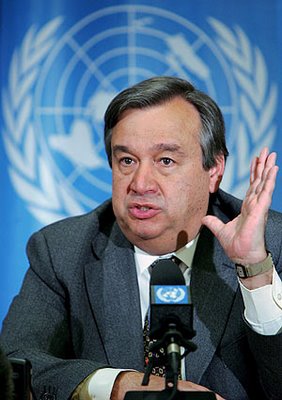Sudan war could worsen intercommunal tension in Abyei: Guterres
October 28, 2023 (NEW YORK) – The prolonged fighting in Sudan is likely to exacerbate intercommunal tensions in Abyei, the United Nations Secretary General, Antonio Guterres said in a report presented to the Security Council.
The 16-page report, which spanned from 19 April to 3 October, provides updates on, among others, political and security developments, women and young people, peace and security, human rights, the humanitarian situation as well as the Joint Border Verification and Monitoring Mechanism (JBVMM).
It further provides key highlight on the ongoing challenges to UN peace keeping mission in Abyei (UNISFA) operations owing to the outbreak of conflict in Sudan.
The conflict in Sudan, Guterres told the Security Council, continues to block political progress towards a resolution of the final status of Abyei and border issues.
“The United Nations remains ready to accompany the parties in an inclusive political process when conditions allow for its resumption, working closely with the African Union and the Intergovernmental Authority on Development,” he said.
The report gives a glimpse picture on the human rights situation in Abyei region.
“The human rights situation remains fragile, with persisting strained intercommunal relations between the communities,” Geterres said, adding that, “During the reporting period, UNISFA activities in the area of human rights included advocacy, awareness-raising campaigns and engagements with various stakeholders”.
On the humanitarian aspect, the Secretary General stressed that the influx of South Sudanese returnees, displaced Sudanese and third-country nationals fleeing the crisis in the Sudan continued to affect the disputed oil-producing area.
“The disruption of economic activities in the Sudan, from where many basic goods and commodities come to the area, posed another serious challenge,” he noted.
Meanwhile Guterres expressed concerns over the presence of South Sudanese and Sudanese security forces in Abyei, in violation of the area’s demilitarized status.
“I am also concerned about the occupation of schools and community protection committee facilities by South Sudanese forces in southern Abyei, which negatively affects the communities and hinders the work of UNISFA,” he stressed.
Also acknowledged in the Secretary General’s report are the continued efforts of the government of South Sudan to address the conflict between the Ngok Dinka and Twic Dinka communities in southern Abyei and in South Sudan’s Warrap State.
Geterres strongly condemned the continued fighting and targeting of civilians and UNISFA peacekeepers, saying their safety and security remains a top priority.
He expressed concerns about the proliferation of arms in Abyei, calling upon all stakeholders, the local authorities and communities, to strengthen collaboration with UNISFA by supporting and participating in early warning mechanisms.
The report urged establishment of the Abyei Police Service to address many of the perennial rule of law challenges, until the parties agree on Abyei’s final status.
Abyei is an area on the border between South Sudan and the Sudan that has been accorded special administrative status by the 2004 Protocol on the Resolution of the Abyei Conflict in the Comprehensive Peace Agreement that ended Sudan’s civil war.
Under the terms of the Abyei Protocol, part of the 2005 Comprehensive Peace Agreement (CPA), residents of Abyei have been declared, on an interim basis, to be simultaneously citizens of Sudan’s West Kordofan State and South Sudan’s Northern Bahr el Ghazal State until Abyei’s permanent status is determined through a referendum.
(ST)

